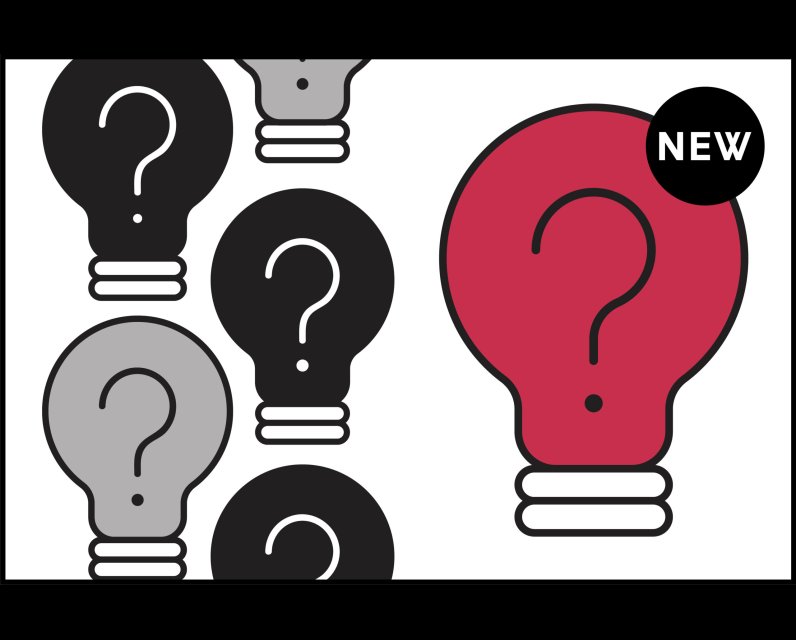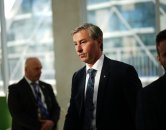Source Feed: Walrus
Author: Kayla Thompson
Publication Date: April 26, 2025 - 06:00
Weekly Quiz: Tricky Tax Cuts, Costly Child Care, and Cutting Ties with Alaska
April 26, 2025

1
2
const title = "Tricky Tax Cuts, Costly Child Care, and Cutting Ties with Alaska";
const date = "April 26, 2025";
const data = [
{
image: "https://walrus-assets.s3.amazonaws.com/img/Braganza_Childcare-1800-1536x1024.jpg",
title: "For Some Parents, There’s Only One Election Issue That Matters",
url: "https://thewalrus.ca/child-care-election/",
question: "For thirty years, national child care plans have neared implementation only to be scrapped after an election. Which former prime minister of Canada axed a fully funded child care plan in favour of a tax credit called the Universal Child Care Benefit?",
options: [
"Paul Martin",
"Brian Mulroney",
"Stephen Harper",
"Kim Campbell",
],
answer: "Stephen Harper",
correct: "Upon taking office in February 2006, Stephen Harper abandoned former prime minister Paul Martin’s fully funded child care plan for a tax credit. Harper’s Conservatives shifted toward a more socially conservative view of the care of the child, framed as giving parents a choice in child care. This manifested in policy as a focus on offsetting costs to families through credits and benefits over funding specific child care systems: it was true in the ’80s, and in the 2000s, when Harper implemented the Universal Child Care Benefit, which paid parents $100 per month for every child under six. The money could be spent however parents saw fit, but these direct payments did little to offset the costs of child care, given the gradual rise in fees due to inflation, rising rents, and high staff turnover.",
incorrect: "Upon taking office in February 2006, Stephen Harper abandoned former prime minister Paul Martin’s fully funded child care plan for a tax credit. Harper’s Conservatives shifted toward a more socially conservative view of the care of the child, framed as giving parents a choice in child care. This manifested in policy as a focus on offsetting costs to families through credits and benefits over funding specific child care systems: it was true in the ’80s, and in the 2000s, when Harper implemented the Universal Child Care Benefit, which paid parents $100 per month for every child under six. The money could be spent however parents saw fit, but these direct payments did little to offset the costs of child care, given the gradual rise in fees due to inflation, rising rents, and high staff turnover.",
},
{
title: "Which Party Has the Best Blueprint for Fixing the Housing Crisis?",
url: "https://thewalrus.ca/election-housing/",
question: "Mark Carney’s Liberals have been very ambitious in their election campaign housing promises, aiming to “get the federal government back into the business of home building” with a new government agency called Build Canada Homes that could kickstart the construction of almost 500,000 new homes a year. By comparison, how many homes were started in Canada in 2024?",
options: [
"200,00",
"245,000",
"475,000",
"500,000",
],
answer: "245,000",
correct: " In a press release issued on March 31, 2025, Mark Carney claimed that if the Liberals win the federal election, they would create a new government agency called Build Canada Homes to develop large-scale, affordable housing projects and to provide favourable financing to prefabricated and “affordable home builders.” The Liberals claim that this would help kickstart 500,000 homes a year. Globally, there are some examples of governments successfully developing homes at scale for citizens, but this particular goal is disconnected from recent precedent. In 2024, just over 245,000 homes were started, a 2 percent increase from 2023.",
incorrect: " In a press release issued on March 31, 2025, Mark Carney claimed that if the Liberals win the federal election, they would create a new government agency called Build Canada Homes to develop large-scale, affordable housing projects and to provide favourable financing to prefabricated and “affordable home builders.” The Liberals claim that this would help kickstart 500,000 homes a year. Globally, there are some examples of governments successfully developing homes at scale for citizens, but this particular goal is disconnected from recent precedent. In 2024, just over 245,000 homes were started, a 2 percent increase from 2023.",
},
{
image: "https://walrus-assets.s3.amazonaws.com/img/WEB_Alaska-Yukon_APR25-735x490.jpg",
title: "Tariffs Are Unravelling the Lifeline Between Yukon and Alaska",
url: "https://thewalrus.ca/tariffs-are-unravelling-the-lifeline-between-yukon-and-alaska/",
question: "These days, many Canadians are steering clear of the US, but the tension feels especially raw in the Yukon, which not only shares a border with Alaska but also a sense of remoteness and a way of life. Despite some Yukoners pulling away, others are finding ways to preserve community ties by participating in what annual celebratory activity?",
options: [
"An outdoor music festival",
"A bike relay race",
"A summer carnival",
"A food festival",
],
answer: "A bike relay race",
correct: "Every summer, Yukoners and Alaskans celebrate their connection with the Kluane Chilkat International Bike Relay, a cross-border bicycle race along the highway from Haines Junction to Haines. This year, the relay’s board, made up of four Alaskans and two Yukoners, voted unanimously to proceed with the event as usual. “We’re not interested in taking a political stand to protest the States,” says Canadian treasurer Colin McCann. Some Yukoners have suggested altering the route so the riders—who usually number 1,200—are turned around at the Canada–US border. That’s not possible with the race’s operating permit, McCann says. Ultimately, the board wants to let the people make their own decision.",
incorrect: "Every summer, Yukoners and Alaskans celebrate their connection with the Kluane Chilkat International Bike Relay, a cross-border bicycle race along the highway from Haines Junction to Haines. This year, the relay’s board, made up of four Alaskans and two Yukoners, voted unanimously to proceed with the event as usual. “We’re not interested in taking a political stand to protest the States,” says Canadian treasurer Colin McCann. Some Yukoners have suggested altering the route so the riders—who usually number 1,200—are turned around at the Canada–US border. That’s not possible with the race’s operating permit, McCann says. Ultimately, the board wants to let the people make their own decision.",
},
{
image: "https://walrus-assets.s3.amazonaws.com/img/Sylvestre-Williams_TaxCuts-735x490.jpg",
title: "Tax Cuts Won’t Make Life More Affordable",
url: "https://thewalrus.ca/tax-cuts-election/",
question: "Both Pierre Poilievre and Mark Carney have promised a tax cut to the lowest income bracket if they emerge victorious in Canada’s federal election. While these cuts may benefit low-income Canadians, experts like Lars Osberg argue that it would be better to invest in which of the following programs?",
options: [
"Canada Pension Plan and Employment Insurance",
"Registered Education Savings Plan and Home Renovation Tax Credit",
"Canada Workers Benefit and Registered Disability Savings Plan",
"Canada Child Benefit and the Guaranteed Income Supplement",
],
answer: "Canada Child Benefit and the Guaranteed Income Supplement",
correct: "Lars Osberg, professor of economics at Dalhousie University, acknowledges that if the core goal of a tax cut is to put more money in people’s pockets, there are better options. Osberg suggests focusing on policies like the Canada Child Benefit or the Guaranteed Income Supplement for seniors. Mauricio Zelaya, Ernst and Young Canada partner and national economics leader, suggests that the government could instead tackle the underlying cost pressures, which includes building more homes, a promise both the Liberals and Conservatives have also made.",
incorrect: "Lars Osberg, professor of economics at Dalhousie University, acknowledges that if the core goal of a tax cut is to put more money in people’s pockets, there are better options. Osberg suggests focusing on policies like the Canada Child Benefit or the Guaranteed Income Supplement for seniors. Mauricio Zelaya, Ernst and Young Canada partner and national economics leader, suggests that the government could instead tackle the underlying cost pressures, which includes building more homes, a promise both the Liberals and Conservatives have also made.",
},
];
The post Weekly Quiz: Tricky Tax Cuts, Costly Child Care, and Cutting Ties with Alaska first appeared on The Walrus.
MONT-LAURIER, Que. – Nova Scotia Premier Tim Houston says he was “dismayed” by Bloc Québécois Leader Yves-François Blanchet’s “insulting” comments about Canada being “an artificial country with very little meaning.”
In a letter to Blanchet Friday night, Premier Houston invited the Bloc boss to “reflect on what it means to be Canadian and take more pride and honor on being an elected...
April 26, 2025 - 10:49 | Antoine Trépanier | National Post
VAL-D’OR, Que. – Yves-François Blanchet makes no bones that he wants Quebec to become a country, and he believes that sitting in a “foreign parliament” will help the cause.
But before tearing apart what he describes as an “artificial country with very little meaning,” he wants to hold the balance of power in the next House of Commons...
April 26, 2025 - 10:17 | Antoine Trépanier | National Post
MARKHAM, Ont.
— Lionel Loganathan says he has probably spoken more Tamil in the past two-and-half years than he has his entire life.
Seated in his campaign office, the Conservative candidate describes how his parents’ story of immigrating from Sri Lanka in the 1980s makes his upbringing like the thousands of others who call Markham, and more specifically the riding of Markham-...
April 26, 2025 - 09:39 | Stephanie Taylor | National Post




Comments
Be the first to comment